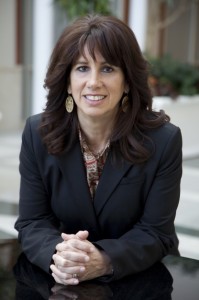This is the final blog in a three-part series about Genome Sequencing and Predicting Cancer.
Just as every person is genetically unique, so is every cancer. While cancer is not usually written in the DNA we are born with, the story of each individual cancer is contained within the unique and different DNA of the cancer cell—the cancer genome. It reveals the genetic alterations specific to each person’s cancer, and these alterations can be targeted to detect cancers, monitor them, and treat them.
Within a few years, we anticipate that all cancer patients at the Kimmel Cancer Center will have their tumors sequenced to reveal their cancer genomes. It will not only help cancer experts determine which treatments may work for a particular patient, but just as importantly, which ones may not. This is the focus of personalized cancer medicine, and we have just begun to realize its potential.
A Universal Test
As tumor cells divide, they develop their own blood supply to get the nutrients they need to nourish and grow, and as a result, pieces of the cancer’s DNA get carried into the bloodstream leaving telltale evidence of its existence. Dr. Bert Vogelstein and team have developed a simple blood test that can detect DNA from cancer cells. These tests have the potential to detect cancers very early, long before they can be seen on X-rays, CT scans, or through other types of diagnostic methods and long before they cause symptoms. Universal, precise, and specific, this test can pluck one cancer cell from a sea of a half million normal cells. It can also help doctors determine if a cancer therapy is working by measuring the amount of cancer DNA in the blood. If a treatment is working, the amount of DNA should decline. If it goes up, it’s a sign that the treatment may not be killing the cancer. Rising levels of cancer DNA could also alert doctors that a cancer has come back.
Dr. Vogelstein says such a test, used together with the prevention strategies we already referenced, could eventually make 75 percent of cancers curable. That is huge!
More about cancer genome sequencing and personalized cancer medicine.
Part One of Sequencing Our Genes: Is Cancer Written in our DNA?
Part Two of Sequencing Our Genes: What is Does and Doesn't Do
